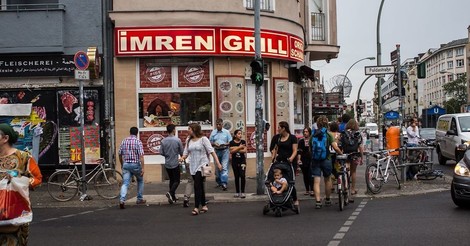Your podcast discovery platform
Curious minds select the most fascinating podcasts from around the world. Discover hand-piqd audio recommendations on your favorite topics.

piqer for: Doing Good Globalization and politics Global finds
Currently, I am a Fellow for the Entrepreneurship for Good Program (Future of Audio Entertainment Challenge) at The DO School. I am a media professional, social entrepreneur and storyteller who experiments with media and art to document life, and I have worked with nonprofits, governments and campaigns internationally. I have an M.Sc. in Social & Cultural Anthropology from the London School of Economics & Political Science.
Immigrants, With Their Hybrid Identities, Trigger Soul-Searching In Germany
As a Bangladeshi-born, first-generation American, the curious that I meet abroad often ask me, “Where are you from?” If this is not already a perplexing question for a person with multiple identities, depending on the answer I give, I receive equally exhausting follow-up questions such as “Where are you really from?” or “Where are your parents from?”
Imagine having to pin down your identity to one specificity such as a geographic location or culture or religion while having to filter out the many details that have added to the complexity that is you. (A task the novelist Chimamanda Adichie calls in her famous TED talk "The danger of a single story.")
When Mesut Özil quit the German national football team after being attacked for his picture with Turkey’s President Erdogan (another debate), he brought up a conversation about the fickle nature of identity in his resignation: “I am German when we win, but I am an immigrant when we lose.” His angst is not isolated as many footballers with dual identities have cited similar criticisms.
But, what if we are both—or more? Ali Can, a Turkish-born, German activist and journalist, started the #MeTwo movement to address the reality that there can be two identities.
With this, Germany must face and address that its demographics have changed and will continue to do so.
Already, nearly a quarter of Germany’s 82 million people have at least one immigrant parent who was born without German citizenship, according to 2017 figures. And the country takes in almost as many newcomers a year as the U.S., mostly European Union nationals who are free to work across the bloc and asylum seekers who can’t be turned back under international law.
The murmurs have just started about what it means to be German as many are speaking out about their experiences. However, to arrive at an answer, Germany (and other countries in comparable positions) must ask itself: “What does it mean to belong?"
